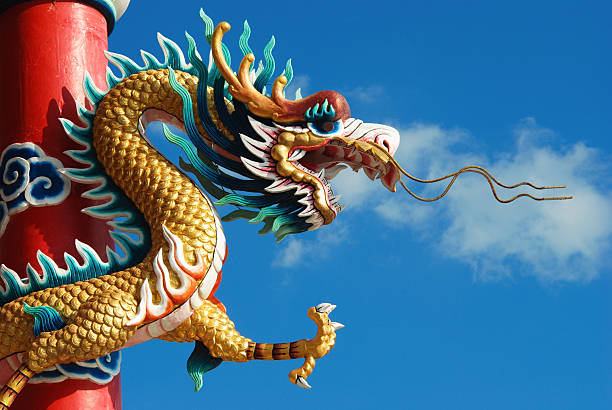The Tax Cut Illusion: Why Borrowing Trillions for the Rich Makes No Economic Sense
In a healthy democracy, when a nation runs a budget surplus—meaning it’s taking in more money than it's spending—it naturally sparks a debate. Do we invest in new programs and services that can benefit the public? Or do we return some of that surplus to the taxpayers through tax cuts?
That’s a fair and important debate. One that reflects our values, priorities, and vision for the future.
But what’s happened in recent decades in the United States isn’t that.
What we’ve witnessed instead is a stunning departure from fiscal logic: trillions of dollars borrowed—not during surpluses, but during deficits—from foreign creditors, all in the name of giving tax cuts to the richest individuals and corporations who already have more money than they know what to do with. That’s not just bad policy. That’s dangerous.
When a Surplus Becomes a Missed Opportunity
Let’s start with the idea of a surplus. It means the country has room to breathe—to pay down debt, invest in infrastructure, education, healthcare, or reduce the tax burden responsibly. Think of it like a family that’s finally saved up after years of tight budgets. Do they invest in their kids’ future? Fix the leaky roof? Or do they give a chunk of cash to the wealthiest family member who already owns several homes?
Now flip that on its head. Imagine instead that this family goes deep into debt to give more money to the wealthiest person in the household. That’s what happens when governments cut taxes for the rich while running massive deficits.
Borrowing to Give to Billionaires
When tax cuts are targeted at the ultra-wealthy—people who aren’t lacking investment capital—they don’t inject money into the economy in the same way a middle-class or working-class tax cut might. The rich don’t spend more because they already spend what they want. They don’t suddenly create more businesses because they already have access to capital markets. They mostly just hoard more wealth or buy back their own companies’ stock.
To pay for these tax cuts, the government borrows money—often from foreign nations like China or Japan. That means our children—rich or poor—will be the ones footing the bill through future taxes, higher interest payments, and fewer public services. It’s economic short-termism disguised as strategy.
The Myth of Trickle-Down Economics
The justification for this, of course, is the long-debunked myth of trickle-down economics: the idea that if you give tax breaks to the wealthy, the benefits will eventually “trickle down” to everyone else through job creation and investment.
But the data tells a different story.
Income inequality widens. Wages stagnate. The ultra-wealthy consolidate more power. And the national debt balloons—creating fiscal pressure to cut programs that benefit the majority, like education, healthcare, and retirement security.
Who Really Benefits?
Ask yourself: Who benefits when the U.S. borrows trillions to fund tax cuts for the rich?
Not the middle class. Not small businesses. Not students. Not seniors. Not future generations.
The beneficiaries are a narrow slice of society that already commands an overwhelming share of the nation’s wealth—and whose power grows as government becomes more beholden to their interests through campaign finance and lobbying.
A Broken Logic
Tax cuts can be a smart tool. So can deficit spending—when used wisely during recessions or emergencies, or when investing in long-term growth like clean energy or digital infrastructure.
But borrowing trillions during economic expansions to give tax breaks to billionaires? That doesn’t compute. It’s not economics. It’s not capitalism. It’s plutocracy in disguise.
And we’ll all pay the price. Unless we speak up, vote accordingly, and demand policies that put public good before private greed.
1/
— Paramendra Kumar Bhagat (@paramendra) June 30, 2025
When a country runs a budget surplus, a healthy debate begins:
💰 New public investment?
📉 Tax cuts?
If tax cuts win, fine.
But what we’ve done instead is borrow trillions—during deficits—to cut taxes for the ultra-rich.
How does that compute?#EconTwitter #TaxJustice
Grounded Greatness: The Case For Smart Surface Transit In Future Cities
The Garden Of Last Debates (novel)
Deported (novel)
Empty Country (novel)
Trump’s Default: The Mist Of Empire (novel)
The 20% Growth Revolution: Nepal’s Path to Prosperity Through Kalkiism
Rethinking Trade: A Blueprint for a Just and Thriving Global Economy
The $500 Billion Pivot: How the India-US Alliance Can Reshape Global Trade
Trump’s Trade War
Peace For Taiwan Is Possible
Formula For Peace In Ukraine
A 2T Cut
Are We Frozen in Time?: Tech Progress, Social Stagnation
The Last Age of War, The First Age of Peace: Lord Kalki, Prophecies, and the Path to Global Redemption
AOC 2028: : The Future of American Progressivism



